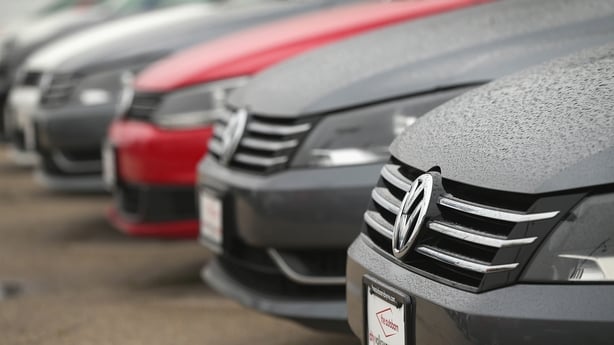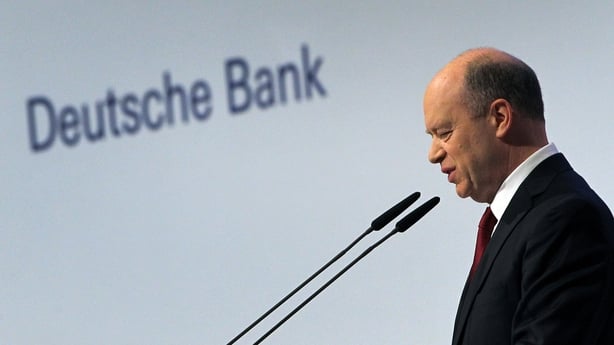Volkswagen is poised to replace chief executive Matthias Mueller with the head of its core VW brand, Herbert Diess, two people familiar with the matter said.
The company is looking to give fresh impetus to its recovery from an emissions scandal.
The German carmaker said it was considering a change in leadership as part of a broader management overhaul, but gave few details. Mueller's contract is due to run until 2020.
The move comes after Europe's largest car maker has been hampered by infighting among its powerful stakeholders, which include the Porsche and Piech families, the German state of Lower Saxony, and labour leaders.
Mueller, a company veteran, was installed at short notice in 2015, a week after the company admitted to cheating US diesel emission tests.
This prompted criticism from some investors who said that only an outsider could rebuild trust in the business.
He launched an ambitious reform plan, including investing billions of euros in electric vehicles, but has struggled to push through changes aimed at creating a more efficient and focused company.
Amid opposition from labour leaders, Mueller failed to sell motorbike maker Ducati last year.
It is unclear how soon Diess, a former BMW executive who joined VW in July 2015 and has clashed with the company's labour leaders, might replace Mueller.
Unions and Lower Saxony together have the power to block his appointment.

Volkswagen is due to discuss a stock market listing for its trucks and bus division at a supervisory board meeting on Friday, two people close to the carmaker said - another move aimed at creating a more focused business.
That plan comes as rivals including Fiat Chrysler and Daimler consider spin offs or legally separate divisions to boost their share prices and raise cash to fund development of electric and self-driving cars.
Despite facing billions in fines, vehicle refits and lawsuits relating to its "dieselgate" scandal, Volkswagen's operating results have been robust under Mueller's watch, with sales and profit hitting record highs last year.
But the persistent tug of war between its controlling families, unions and other stakeholders have made it difficult to drive through structural changes that investors have said are key to the company fulfilling its potential.
Mueller has expressed frustration with the pace of Volkswagen's transformation and more recently about his ability to turn around the brand's image following revelations the company had tested toxic fumes on monkeys.
Volkswagen's shares have outperformed the European autos sector index by 10% over the past three years, and recovered to pre-dieselgate levels last year.
Volkswagen said that Mueller had expressed his general willingness to participate in a management overhaul, and it was still to be determined whether efforts to develop a new leadership structure would leave him in place.
Chairman Hans Dieter Poetsch is currently in talks about changing the structure with fellow supervisory board members and members of the management board, Volkswagen said.
Mueller's possible replacement will likely face similar challenges to get Volkswagen's stakeholders to unite.
Diess, 59, has focused his reforms at the VW brand on procurement and process management to bring its cost structure and efficiency closer to that of rival Toyota, but stopped short of making sweeping job cuts.
Diess and Mueller instead agreed to guarantee VW's German jobs until 2025 to get labour approval for a plan to turn the carmaker into a mass producer of electric cars.
Mueller's likely departure comes two days after Deutsche Bank, another pillar of corporate Germany, dismissed its chief executive, John Cryan, in pursuit of a more rapid turnaround following years of losses.

The debate about Volkswagen's future structure comes a month after its largest shareholder, Porsche Automobil Holding, picked three new representatives of the Porsche and Piech families to help oversee Volkswagen.
Volkswagen declined to comment on whether the board was poised to name Diess as new CEO.
The works council, whose members occupy half the seats on the supervisory board, also declined to comment.

